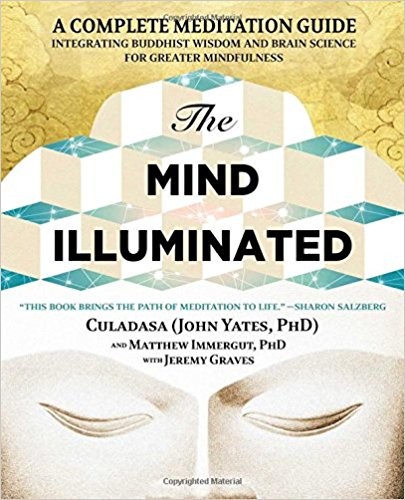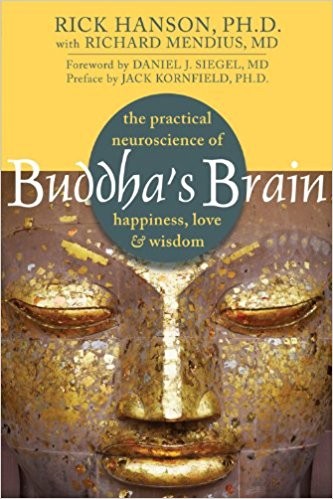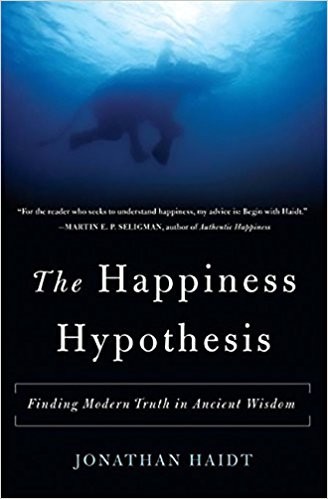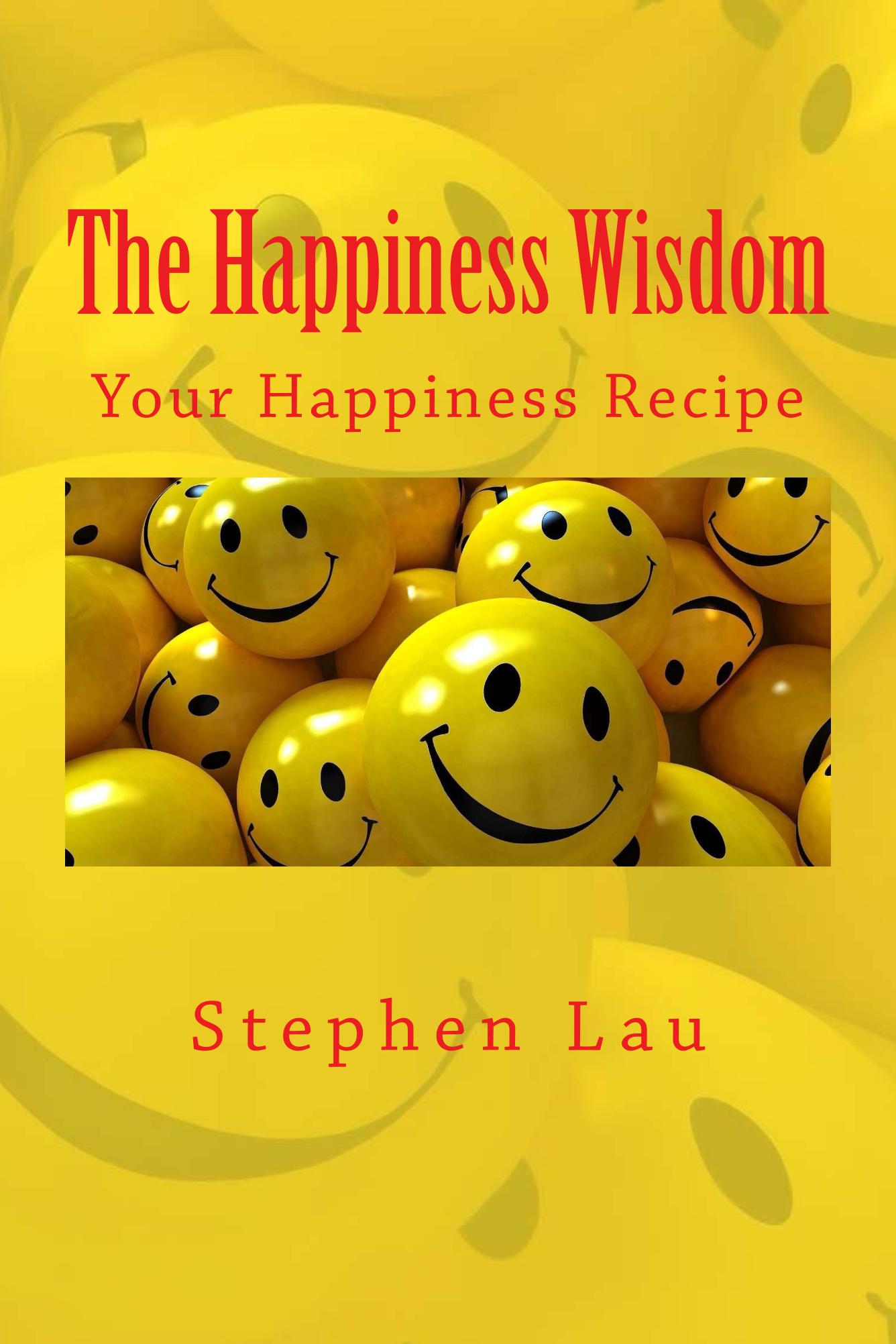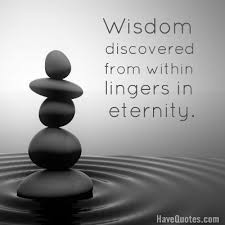
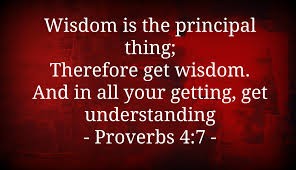

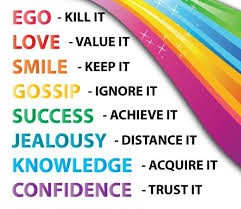



Wisdom in Living
Happiness Wisdom
Stephen Lau
Stephen Lau

Stephen Lau's
EXPERIENCING OF LIFE RECIPES
EXPERIENCING OF LIFE RECIPES

The Unattainable Quest
Man is inherently desirous of happiness. We all want to become happy; without happiness, human existence may have become meaningless. Therefore, we all want to avoid unhappiness, and this self-defense mechanism may then develop into addictive habit patterns that have ultimately become some of the characteristics of our individual personality, affecting how we think. In other words, to avoid unhappiness, we may subconsciously begin to "lose contact with our realities" and thus become the persons we are not supposed to be. Depression is a mental struggle against unhappiness that an individual wishes to avoid, and in the process becomes a different person -- a person with ever-changing moods and temperaments.
Depression is no more than a personal struggle against unattainable happiness, which is the essence of life and living. Therefore, almost everybody is always in quest of happiness. Sadly, to many, the quest for happiness is forever unreachable-just like a carrot-and-stick in front of a mule; the more pain inflicted on the mule by the stick: the more desire the mule demonstrates to reach out for the forever unattainable carrot in front. In many ways, a depressed individual is just like that mule with self-inflicted pain, which is the depression-the more unhappy that individual feels, the more depressed that individual will become, and the longer that vicious cycle of depression will continue, only plunging that depressed individual deeper into a fathomless black hole of despair and hopelessness. Depression is no more than a mental manifestation of the forever unattainable happiness that an individual strives to seek.
But why is human happiness so elusively and evasively unreachable and unattainable? The answer is, surprisingly, quite simple: happiness has to do with one’s perceptions of life experiences, and thus the thinking mind plays a pivotal role in that respect. That is to say, human happiness and the human mind are inter-related; without profound human wisdom, the pursuit of happiness is like wandering in the wilderness without a compass and a road map. Indeed, true human wisdom holds the key to opening the door to understanding true human happiness.
Given the close connection between depression and happiness, understanding true human happiness may help a depressed individual overcome his or her depression.
Stephen Lau
Copyright © Stephen Laun
(The above is taken from Stephen Lau's book My Way! No Way! Tao Is the Way!)
Man is inherently desirous of happiness. We all want to become happy; without happiness, human existence may have become meaningless. Therefore, we all want to avoid unhappiness, and this self-defense mechanism may then develop into addictive habit patterns that have ultimately become some of the characteristics of our individual personality, affecting how we think. In other words, to avoid unhappiness, we may subconsciously begin to "lose contact with our realities" and thus become the persons we are not supposed to be. Depression is a mental struggle against unhappiness that an individual wishes to avoid, and in the process becomes a different person -- a person with ever-changing moods and temperaments.
Depression is no more than a personal struggle against unattainable happiness, which is the essence of life and living. Therefore, almost everybody is always in quest of happiness. Sadly, to many, the quest for happiness is forever unreachable-just like a carrot-and-stick in front of a mule; the more pain inflicted on the mule by the stick: the more desire the mule demonstrates to reach out for the forever unattainable carrot in front. In many ways, a depressed individual is just like that mule with self-inflicted pain, which is the depression-the more unhappy that individual feels, the more depressed that individual will become, and the longer that vicious cycle of depression will continue, only plunging that depressed individual deeper into a fathomless black hole of despair and hopelessness. Depression is no more than a mental manifestation of the forever unattainable happiness that an individual strives to seek.
But why is human happiness so elusively and evasively unreachable and unattainable? The answer is, surprisingly, quite simple: happiness has to do with one’s perceptions of life experiences, and thus the thinking mind plays a pivotal role in that respect. That is to say, human happiness and the human mind are inter-related; without profound human wisdom, the pursuit of happiness is like wandering in the wilderness without a compass and a road map. Indeed, true human wisdom holds the key to opening the door to understanding true human happiness.
Given the close connection between depression and happiness, understanding true human happiness may help a depressed individual overcome his or her depression.
Stephen Lau
Copyright © Stephen Laun
(The above is taken from Stephen Lau's book My Way! No Way! Tao Is the Way!)
Happiness Quotes
"The greatest happiness is to know the source of unhappiness." Fyodor Dostoevsky
“Everything you perceive, externally, is the manifestation of some internal part of you. If it was not, it would not be present in your perceived reality.” Tony Warrick
"Success is not the key to happiness. Happiness is the key to success." Albert Schweitzer
“It stands to the everlasting credit of science that by acting on the human mind it has overcome man’s insecurity before himself and nature.” Albert Einsteins
"Happiness is not something you postpone for the future; it is something you design for the present." Jim Rohn
"Christmas is the spirit of giving without a thought of getting." Thomas S. Monson
"Happiness is when what you think, what you say, what you do, are in harmony." Mahatma Gandhi
“The ‘self-image’ is the key to human personality and human behavior. Change the self image and you change the personality and the behavior.” Maxwell Maltz
"Happiness is not something ready made. It comes from your own actions." Dalai Lama
"Every day is a new day, and you'll never be able to find happiness if you don't move on." Carrie Underwood
"It is not how much we have, but how much we enjoy, that makes happiness." Charles Spurgeon
"Happiness doesn't depend on any external conditions, it is governed by our mental attitude." Dale Carnegie
"Crying is cleansing. There's a reason for tears, happiness or sadness." Dionne Warwick
"Happiness is a butterfly, which when pursued, is always just beyond your grasp, but which, if you sit down quietly, may alight upon you." Nathaniel Hawthorne
"The true secret of happiness lies in taking a genuine interest in all the details of daily life." William Morris
"Happiness depends upon ourselves." Aristotle
"Happiness is nothing more than good health and a bad memory." Albert Schweitzer
"Success is getting what you want. Happiness is wanting what you get." Dale Carnegie
"Happiness can exist only in acceptance" George Orwell
"True happiness is not attained through self- gratification, but through fidelity to a worthy purpose." Helen Keller
"Happiness in intelligent people is the rarest thing I know." Ernest Hemingway
"There is no greater sorrow than to recall happiness in times of misery." Dante Alighieri
"True happiness involves the full use of one's power and talents." John W. Gardner
"If you are happy, you can give happiness." Gisele Bundchen
“The things bring you the greatest joy are in alignment with your purpose.” Jack Canfield
"There is no way to happiness -- happiness is the way." Thich Nhat Hanh
"A table, a chair, a bowl of fruit, and a violin; what else does a man need to be happy?" Albert Einstein
"No man chooses evil because it is evil; he only mistakes it for happiness, the good he seeks." Mary Wollstonecraft
“It is the mark of an educated mind to be able to entertain a thought without accepting it.” Aristotle
“Don't cry because it's over, smile because it happened.” Dr. Seuss
“For every minute you are angry you lose sixty seconds of happiness.” Ralph Waldo Emerson
“You will never be happy if you continue to search for what happiness consists of. You will never live if you are looking for the meaning of life.” Albert Camus
"The greatest happiness is to know the source of unhappiness." Fyodor Dostoevsky
“Everything you perceive, externally, is the manifestation of some internal part of you. If it was not, it would not be present in your perceived reality.” Tony Warrick
"Success is not the key to happiness. Happiness is the key to success." Albert Schweitzer
“It stands to the everlasting credit of science that by acting on the human mind it has overcome man’s insecurity before himself and nature.” Albert Einsteins
"Happiness is not something you postpone for the future; it is something you design for the present." Jim Rohn
"Christmas is the spirit of giving without a thought of getting." Thomas S. Monson
"Happiness is when what you think, what you say, what you do, are in harmony." Mahatma Gandhi
“The ‘self-image’ is the key to human personality and human behavior. Change the self image and you change the personality and the behavior.” Maxwell Maltz
"Happiness is not something ready made. It comes from your own actions." Dalai Lama
"Every day is a new day, and you'll never be able to find happiness if you don't move on." Carrie Underwood
"It is not how much we have, but how much we enjoy, that makes happiness." Charles Spurgeon
"Happiness doesn't depend on any external conditions, it is governed by our mental attitude." Dale Carnegie
"Crying is cleansing. There's a reason for tears, happiness or sadness." Dionne Warwick
"Happiness is a butterfly, which when pursued, is always just beyond your grasp, but which, if you sit down quietly, may alight upon you." Nathaniel Hawthorne
"The true secret of happiness lies in taking a genuine interest in all the details of daily life." William Morris
"Happiness depends upon ourselves." Aristotle
"Happiness is nothing more than good health and a bad memory." Albert Schweitzer
"Success is getting what you want. Happiness is wanting what you get." Dale Carnegie
"Happiness can exist only in acceptance" George Orwell
"True happiness is not attained through self- gratification, but through fidelity to a worthy purpose." Helen Keller
"Happiness in intelligent people is the rarest thing I know." Ernest Hemingway
"There is no greater sorrow than to recall happiness in times of misery." Dante Alighieri
"True happiness involves the full use of one's power and talents." John W. Gardner
"If you are happy, you can give happiness." Gisele Bundchen
“The things bring you the greatest joy are in alignment with your purpose.” Jack Canfield
"There is no way to happiness -- happiness is the way." Thich Nhat Hanh
"A table, a chair, a bowl of fruit, and a violin; what else does a man need to be happy?" Albert Einstein
"No man chooses evil because it is evil; he only mistakes it for happiness, the good he seeks." Mary Wollstonecraft
“It is the mark of an educated mind to be able to entertain a thought without accepting it.” Aristotle
“Don't cry because it's over, smile because it happened.” Dr. Seuss
“For every minute you are angry you lose sixty seconds of happiness.” Ralph Waldo Emerson
“You will never be happy if you continue to search for what happiness consists of. You will never live if you are looking for the meaning of life.” Albert Camus

The Different Happy and Unhappy Personalities
The Unhappy Personality
There are those who are forever unhappy due to an unhappy childhood, an unfulfilled adult life, and many unhappy life experiences throughout their life journey. They have made indelible imprints on their minds, making them see only the problems, instead of the potentials ahead of them. They do not want to live, but they just do not die. Not wanting or knowing how to purposely end their lives, they just drift on, or simply live a reckless life in hope of an early demise.
They have suffered and gone through too much in their lives. They do not know how to cope with their life problems and how to deal with their life challenges. They have despaired and become helpless, and depression is their only escape from the realities they strive to avoid. They are forever the unhappy ones because unhappiness has become their brain chemicals.
The Neither-Happy-Nor-Unhappy Personality
There are those who have always been only spectators, instead of participants, of life; they are forever sitting on the sidelines of life, observing others and never thinking that they could be a part of it. They always believe that life is not worth taking chances because their minds have been filled with many assumptions that they are not competent enough to get involved. Inactivity and passivity play a major role in their lives. They may not like their current situations, but they do not know how and where to start to change them. Even if they have the know-how, they do not want to do it, or unless someone else would do it for them. Life is too much for them; they just stay back and stay put, not taking any chance or exerting any effort, while they try to get by with whatever they have. They never see the need to take the initiative to create a better life for themselves.
If they just do not die, they just carry on with their lives with different episodes of high and low, always wondering why they do not have what they wish they had, or why others are always having what they are not having.
The To-Be-Happy Personality
There are those who are always in quest of happiness. They have the problematic mindset of “better” and “more” in their endless quest for careers, relationships, and material comforts that have become the sole objectives of their personal happiness. Their to-be-happiness just keeps them always wanting “better” and “more” in order to feel happy or happier.
The Happy Personality
There are those who have the wisdom to understand that true happiness requires both action and effort, that happiness is only a moment-to-moment feeling, and that happiness never lasts.
Indeed, happiness is feeling good about oneself, and it requires one to take some actions in order to feel good about oneself. It should be pointed out that elated feelings, such as happiness, satisfaction, and fulfillment, are not the natural and normal resting states of the human mind; therefore, one must take a deliberate action in order to achieve and activate those innate mental states. The only explanation is that our ancestors in the Stone Age did not naturally or instinctively feel comfortable, secure, and satisfied with their status quo. They certainly did not pass those genes on to us. They had to fight to survive; by the same token, we all must make a conscious effort to take some actions in order to feel good, happy, and satisfied.
Remember, true human happiness is a process, a way of living, involving some actions to change the consciousness of thinking. It is no more than the ability to experience joy when good things happen; the ability to feel satisfaction when goals are achieved; the ability to cope with problems, the ability to adapt to changes, and the ability to give meaning and purpose to life.
Stephen Lau
Copyright © Stephen Lau
The Unhappy Personality
There are those who are forever unhappy due to an unhappy childhood, an unfulfilled adult life, and many unhappy life experiences throughout their life journey. They have made indelible imprints on their minds, making them see only the problems, instead of the potentials ahead of them. They do not want to live, but they just do not die. Not wanting or knowing how to purposely end their lives, they just drift on, or simply live a reckless life in hope of an early demise.
They have suffered and gone through too much in their lives. They do not know how to cope with their life problems and how to deal with their life challenges. They have despaired and become helpless, and depression is their only escape from the realities they strive to avoid. They are forever the unhappy ones because unhappiness has become their brain chemicals.
The Neither-Happy-Nor-Unhappy Personality
There are those who have always been only spectators, instead of participants, of life; they are forever sitting on the sidelines of life, observing others and never thinking that they could be a part of it. They always believe that life is not worth taking chances because their minds have been filled with many assumptions that they are not competent enough to get involved. Inactivity and passivity play a major role in their lives. They may not like their current situations, but they do not know how and where to start to change them. Even if they have the know-how, they do not want to do it, or unless someone else would do it for them. Life is too much for them; they just stay back and stay put, not taking any chance or exerting any effort, while they try to get by with whatever they have. They never see the need to take the initiative to create a better life for themselves.
If they just do not die, they just carry on with their lives with different episodes of high and low, always wondering why they do not have what they wish they had, or why others are always having what they are not having.
The To-Be-Happy Personality
There are those who are always in quest of happiness. They have the problematic mindset of “better” and “more” in their endless quest for careers, relationships, and material comforts that have become the sole objectives of their personal happiness. Their to-be-happiness just keeps them always wanting “better” and “more” in order to feel happy or happier.
The Happy Personality
There are those who have the wisdom to understand that true happiness requires both action and effort, that happiness is only a moment-to-moment feeling, and that happiness never lasts.
Indeed, happiness is feeling good about oneself, and it requires one to take some actions in order to feel good about oneself. It should be pointed out that elated feelings, such as happiness, satisfaction, and fulfillment, are not the natural and normal resting states of the human mind; therefore, one must take a deliberate action in order to achieve and activate those innate mental states. The only explanation is that our ancestors in the Stone Age did not naturally or instinctively feel comfortable, secure, and satisfied with their status quo. They certainly did not pass those genes on to us. They had to fight to survive; by the same token, we all must make a conscious effort to take some actions in order to feel good, happy, and satisfied.
Remember, true human happiness is a process, a way of living, involving some actions to change the consciousness of thinking. It is no more than the ability to experience joy when good things happen; the ability to feel satisfaction when goals are achieved; the ability to cope with problems, the ability to adapt to changes, and the ability to give meaning and purpose to life.
Stephen Lau
Copyright © Stephen Lau

The Happiness Myths
Happiness is only an abstraction, a far-fetched thought that is often elusive and evasive; it is difficult not only to define but also to understand. To further the complication, happiness often creates certain misleading myths.
The myth: the happiness sources
It is always a myth that abundant wealth, good health, and satisfying relationships-what most people crave and pursue in their lives-will bring them happiness. Abundant wealth, good health, and satisfying relationships are only the byproducts of happiness; they do not cause or bring true and lasting happiness in real life.
To illustrate, many lottery winners attest to their experiences of temporary ecstatic happiness, and nearly all winners confess that their winning has ultimately made them miserable and unhappy for various reasons. Maybe once the initial stimulus of sudden wealth and the drastic changes of lifestyle have worn off, they ultimately return to their original baseline level of happiness or unhappiness. Or, maybe, according to some experts, having too much pleasure-what is known as “eustress”-could also cause stress, just as lacking in pleasure might be stressful to the many have-nots.
The myth: the happiness effort
It is also a myth that happiness is something that can be pursued with willpower and effort. The Bible rightly says that pursuing happiness is just “like chasing the wind.” (Ecclesiastes 2:11)
Effort does not necessarily bring happiness; it only creates the illusion of an environment that is conducive to temporary happiness. To illustrate, one may work diligently in one’s career to excel and to get to the top of the profession only to find that one has a terminal illness, or has incurred a debilitating accident. For example, Steve Job, the co-founder of Apple computers, had his life cut short by pancreatic cancer at the height of his successful business career.
Pursuing happiness may be only a fantasy fueled by temporary moments of happiness, because aging, illnesses, misfortunes, and ultimately death plague all alike; in other words, impermanence cuts short all human efforts and endeavors to bring happiness. We are all aware of the fact that impermanence is an ultimate leveler of everybody and everything, but many of us still choose to delude ourselves into thinking otherwise. Denial only fosters the myth that if there is a will there must be a way to attaining happiness, and that all it requires is the human effort to make any dream come true.
Stephen Lau
Copyright © Stephen Lau
Happiness is only an abstraction, a far-fetched thought that is often elusive and evasive; it is difficult not only to define but also to understand. To further the complication, happiness often creates certain misleading myths.
The myth: the happiness sources
It is always a myth that abundant wealth, good health, and satisfying relationships-what most people crave and pursue in their lives-will bring them happiness. Abundant wealth, good health, and satisfying relationships are only the byproducts of happiness; they do not cause or bring true and lasting happiness in real life.
To illustrate, many lottery winners attest to their experiences of temporary ecstatic happiness, and nearly all winners confess that their winning has ultimately made them miserable and unhappy for various reasons. Maybe once the initial stimulus of sudden wealth and the drastic changes of lifestyle have worn off, they ultimately return to their original baseline level of happiness or unhappiness. Or, maybe, according to some experts, having too much pleasure-what is known as “eustress”-could also cause stress, just as lacking in pleasure might be stressful to the many have-nots.
The myth: the happiness effort
It is also a myth that happiness is something that can be pursued with willpower and effort. The Bible rightly says that pursuing happiness is just “like chasing the wind.” (Ecclesiastes 2:11)
Effort does not necessarily bring happiness; it only creates the illusion of an environment that is conducive to temporary happiness. To illustrate, one may work diligently in one’s career to excel and to get to the top of the profession only to find that one has a terminal illness, or has incurred a debilitating accident. For example, Steve Job, the co-founder of Apple computers, had his life cut short by pancreatic cancer at the height of his successful business career.
Pursuing happiness may be only a fantasy fueled by temporary moments of happiness, because aging, illnesses, misfortunes, and ultimately death plague all alike; in other words, impermanence cuts short all human efforts and endeavors to bring happiness. We are all aware of the fact that impermanence is an ultimate leveler of everybody and everything, but many of us still choose to delude ourselves into thinking otherwise. Denial only fosters the myth that if there is a will there must be a way to attaining happiness, and that all it requires is the human effort to make any dream come true.
Stephen Lau
Copyright © Stephen Lau
"Great Ideas" on happiness espoused by great thinkers of the past – Plato, Buddha, Jesus and others – and their relevance to contemporary living.
Use the neuroscience of the brain to change your life into a happier you!

The Happiness Wisdom
Your Happiness Recipe Ingredients: Ancient Wisdom! Conventional Wisdom! Spiritual Wisdom!
Happiness or unhappiness is only a perception of the human mind. That is why you need wisdom to change your thinking mind in order to change the "realities" you perceive, making you happy or unhappy.
This 161-page book shows you how ancient wisdom from the East and the West, conventional wisdom, and spiritual wisdom may enlighten you. Also, the book provides many real-life examples reported in the news and the media to illustrate how and why happiness or unhappiness occurs to humans.
Your life journey is uniquely yours, and so are your life experiences. This 161-page book provides you with happiness ingredients, but you have to make your own recipe because it is your life journey.
To get your digital copy, click here; to get your paperback copy, click here.
Your Happiness Recipe Ingredients: Ancient Wisdom! Conventional Wisdom! Spiritual Wisdom!
Happiness or unhappiness is only a perception of the human mind. That is why you need wisdom to change your thinking mind in order to change the "realities" you perceive, making you happy or unhappy.
This 161-page book shows you how ancient wisdom from the East and the West, conventional wisdom, and spiritual wisdom may enlighten you. Also, the book provides many real-life examples reported in the news and the media to illustrate how and why happiness or unhappiness occurs to humans.
Your life journey is uniquely yours, and so are your life experiences. This 161-page book provides you with happiness ingredients, but you have to make your own recipe because it is your life journey.
To get your digital copy, click here; to get your paperback copy, click here.




